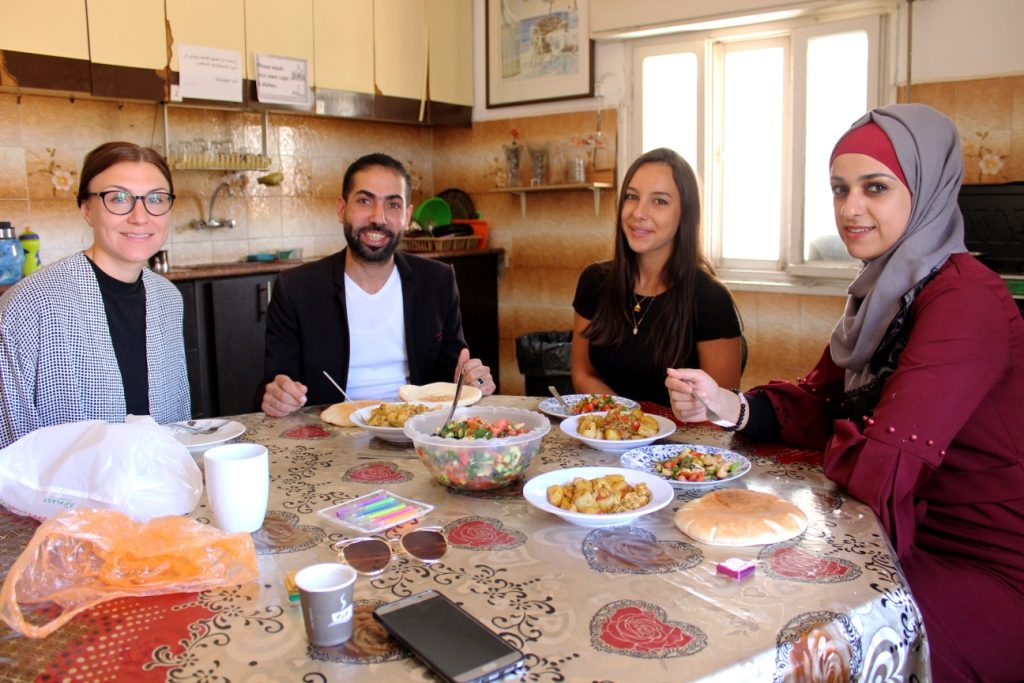Good tips to prepare yourself before learning Palestinian Arabic: Palestinian Arabic is one of the Levantine languages. If you have decided to Learn to read and write Arabic in Palestine, one big part is learning the Alphabet. A very useful tip comes from some of the students at the EC, Bobby says “If you can learn the Alphabet before coming to Palestine, you will save a lot of precious time. You will ”. This way you can delve right into word writing, sounds and of course speaking and understanding.
For a start, “Levantine Arabic is strongly influenced by Aramaic which was spoken in the Levant (Eastern Mediterranean) before the arrival of Arabic. Unlike Classical Arabic (MSA) that tends to resist borrowing from another language, Levantine Arabic is more open to borrowing words from other languages.”
The Alphabet consists in 28 letters and many letters are similar but are distinguished from one another by dots. Written Arabic (and printed) is cursive meaning that the letters are joined. So, when you learn Arabic you first learn each letter of the alphabet and their corresponding writing when at the beginning, in the middle or at the end of a word. At the same time, you need to identify their corresponding sounds (some letters present a real challenge for non-Arabic speakers ☺). Then comes the art of joining the letters which don´t necessarily follow a strict rule, like many languages it was adapted to suit its users.
When you come to the EC, the first thing your teacher will give you is a list of letters or a book and a technique to learn them and their sounds. So, the sooner you are familiar with them, the earlier you will start the business of letter joining and deciphering words. Having said, more students than have no knowledge of Arabic when they start at the EC and it is not rare to see non-Arabic speaker start writing and speaking within a month or 2!
If you feel you have the time and the self-motivation to learn beforehand, practice the sounds, the internet is full of resources: videos and tutorials. If you are even more adventurous and feel like learning some words, beware to stick to Palestinian Arabic (Ammia) as to Classical Arabic (Fosha).
But don´t threat, if you cannot spare the time from your schedule, there is an array of teachers who will be more than happy to take you through the steps to learn and get you to the level you aspire to. Seeing the many non-Arab speakers being able to hold a conversation with the locals is a clear testimony that if you “really want to you will succeed”.







